When prescribing antibiotics, the doctor informs the patient that alcohol is absolutely not allowed with antibiotics. Most people try to stick to this recommendation, but if treatment coincides with important events or holidays, breaking the ban is very likely.
The attitude of evidence-based medicine to this situation is controversial, because no formal study has been carried out, the results of which will allow to fully appreciate the negative consequences of takingsimultaneous use of alcohol and antibacterial drugs. This does not mean that you can safely combine them, no sane doctor will recommend this. To understand how dangerous it is to drink alcohol during antibiotic treatment, the article describes the consequences of the combined effects of these substances on the body, giving examples of combinations of these agents. known drugs and alcoholic beverages.
Effects of alcohol and antibiotics on the body
Holidays in our country are traditionally celebrated with the use of spirits. Many people cannot deny this pleasure even during illness, forgetting that alcohol in small doses has a relaxing and calming effect, while in large doses it can lead to serious health problems. Among them:
- Liver dysfunction.
- Excessive stress on the digestive tract.
- Increase heart rate.
- Death of brain cells.
- Chronic diseases of the kidneys and bladder.
- Disruption of the nervous system.
- Severe hangover syndrome.
- Depression, nervous breakdown.
Drinking alcohol during illness is definitely not worth it. This puts extra strain on the body, which is already working in emergency mode, to fight off illness.

Antibacterial drugs, introduced 90 years ago, quickly became a drug in demand and saved millions of lives. The principle of action of antibiotics is the ability to destroy pathogenic bacteria, destroy their structure; suppresses reproduction, stops the growth of pathogens, then the immune system has a chance to fight the disease on its own.
Antibacterial drugs act on a person as strongly as possible, weakening the immune system's ability to fight disease independently. Their use is a must in cases of bacterial infections, which the body cannot cope with alone. Only a professional doctor has the right to prescribe such drugs. It is clear that self-treatment is not possible, especially with a disease of viral origin, when antibacterial drugs are useless.
Antibiotics help avoid the serious consequences of the disease, but taking antibiotics will lead to a number of side effects:
- Inhibits the natural microflora of the stomach.
- Decreased immunity, the body's inability to fight off pathogens.
- The liver cannot completely clean the body of toxins.
A person's health deteriorates, lethargy, weakness appear, depression appears, chronic diseases worsen.
It is not difficult to imagine what happens to the unfortunate creature when a course of antibiotic treatment is combined with violent parties. The immune system, kidneys, liver and organs of the gastrointestinal tract will have a double burden that is extremely difficult to deal with. This can lead to a worsening of the existing condition, the disease from the acute stage to the chronic stage is much more difficult to treat.
Effect of alcohol on the effect of antibacterial drugs
Evidence-based medicine does not know of specific examples of impaired antibiotic action in the context of alcoholic beverage consumption. Sometimes the opposite situation occurs: the amount of enzymes increases and the breakdown of the drug takes place faster. But another scenario is also possible, where the drug is poorly eliminated from the body, accumulates in cells and results in an adverse reaction.
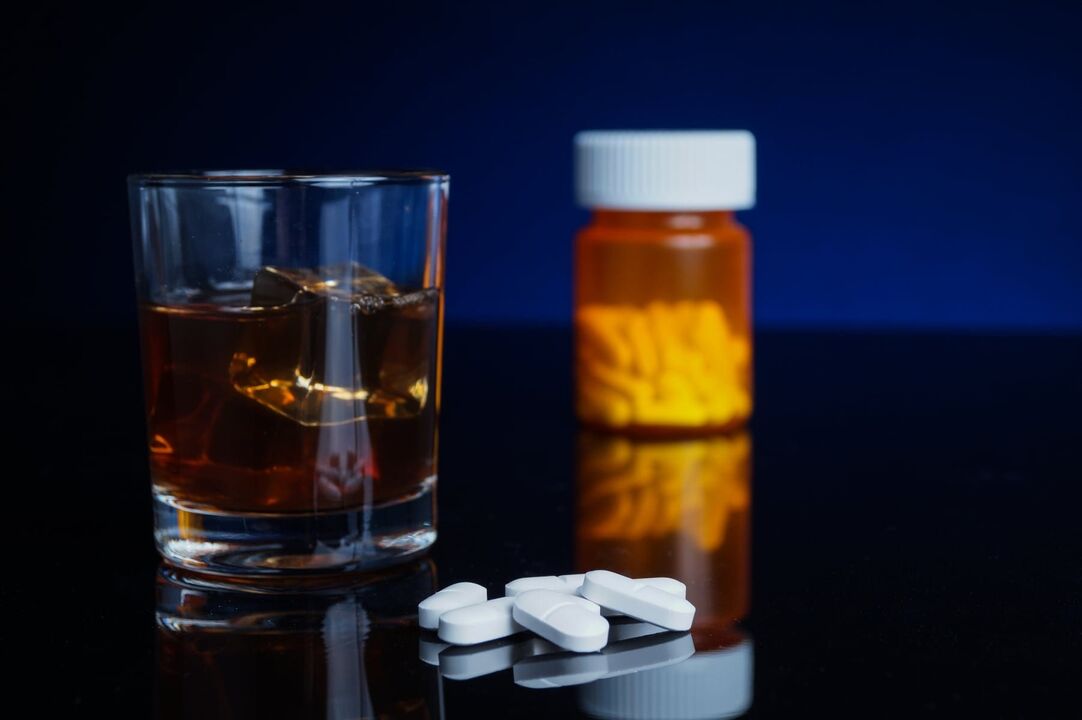
There are two intriguing theories as to why the incompatibility between antibiotics and alcohol is considered a scientific fact. The first states that antibacterial drugs were originally used to treat sexually transmitted infections. Doctors consider the presence of such ailments as a sign of intolerance and weakness of character, and the prohibition of alcohol becomes a punishment.
The second theory emerged during the Second World War, when wounded soldiers needed penicillin. According to legend, there were so few drugs that, according to legend, doctors tried to extract it from urine. The problem is that soldiers in their spare time like to drink beer, which has a diuretic effect and reduces the concentration of microorganisms. As a result, alcoholic beverages were banned, and in medicine the postulate that alcohol and antibiotics were incompatible was gradually adopted.
There are several reasons for this statement. Doctors note that in patients who drink alcohol at the same time as antibacterial drugs, recovery is much slower than in those who lead a sober lifestyle. The reason lies in the fact that drinking alcohol along with antibiotics will lead to other negative consequences related to a weakened immune system. With the frequent use of alcoholic beverages, it is not possible to establish an exact regimen of life with proper diet and rest. At the same time, vitamins, minerals and nutrients cannot be fully absorbed and the body is gradually depleted. As a result, the patient's medication will lose its effectiveness.
Compatibility of alcoholic beverages and antibiotics
Modern antibiotics are very gentle. Their combination with alcohol, in most cases, does not have a strong negative effect on the body. Doctors determined some drugs could not be combined with strong drinks. The speed of their assimilation is related to the work of the same enzymes responsible for the breakdown of ethanol - the basis of alcoholic beverages. Enzymes cannot cope with a large amount of work, and as a result, the drug accumulates in the body. This brings about side effects that a person will soon feel on their own.
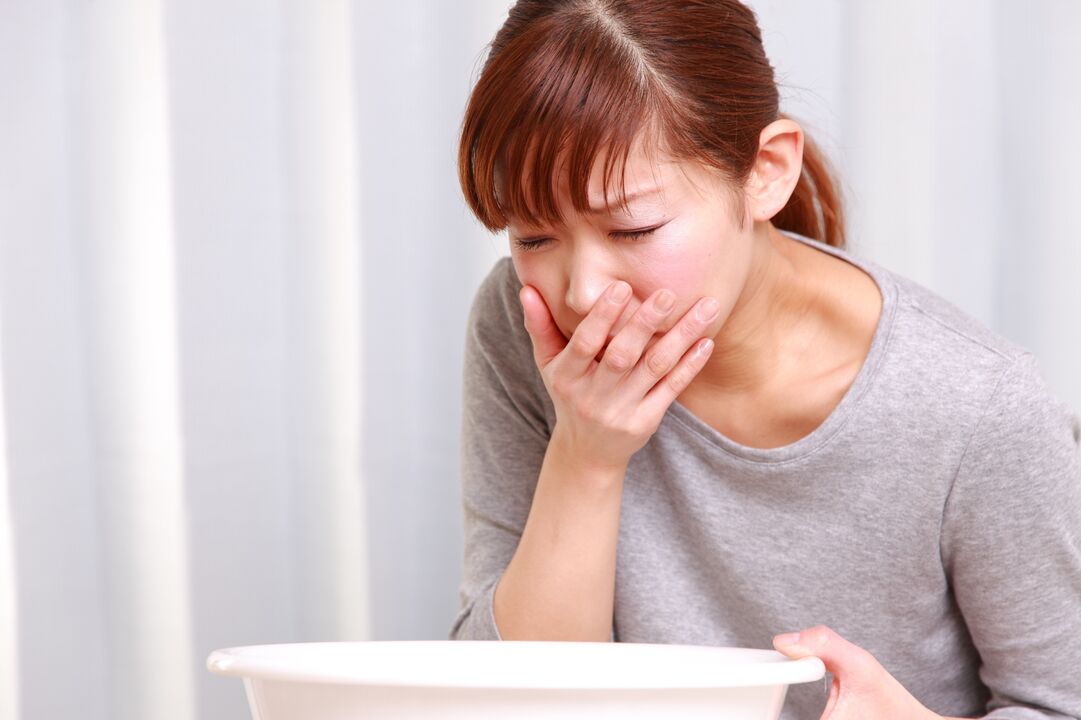
The interaction of antibiotics and alcohol leads to a large list of negative consequences:
- Severe headache that resembles a migraine.
- Nausea vomiting.
- Dizziness, loss of consciousness.
- Tachycardia, arrhythmia.
- Fever, increased temperature.
- Sweat a lot.
- Insomnia.
- A state close to depression, irritability.
- Weakness, drowsiness, loss of strength.
- The process of hepatitis, jaundice.
- Stomach pain due to inflammation and stomach ulcers.
Disulfiram-like reaction
The most common and dangerous negative consequence is a disulfiram-like reaction. This drug, used in the treatment of alcoholism, may affect the activity of enzymes that process ethyl alcohol. Metabolism consists of two phases:
- Ethyl alcohol is broken down to acetaldehyde.
- Acetic aldehyde is converted to acetic acid.
The incompleteness of the second stage leads to the strongest hangover syndrome. For lovers of alcoholic beverages taking pills, the timely breakdown of ethanol is interrupted, and if a dose of alcohol is added to the body, the body will be flooded with harmful substances. Drinking alcohol in a state of intoxication cannot, the patient cut off the addiction.
The signs of a disulfiram-like reaction are similar to those of a severe hangover:
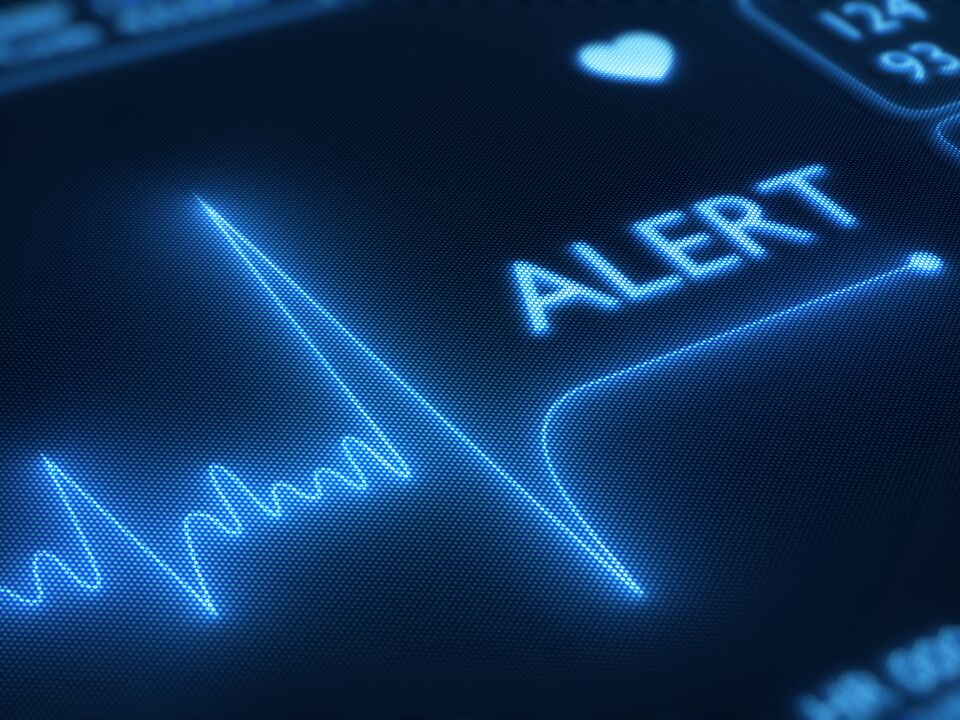
- Chills.
- Increase heart rate.
- Nausea vomiting.
- Convulsion.
- Allergic reaction.
- Headache.
- Respiratory failure.
The latter of a disulfiram-like reaction is considered life-threatening due to the potential for death. When trying to mix antibiotics and alcohol, patients should be careful, closely monitoring their progress. Consequences can appear during the party or 4-5 hours later. In this situation, you must promptly seek medical help.
Effects of simultaneous use of antibiotics and alcohol on the functioning of the liver and gastrointestinal tract
The main reason for the ban on taking antibiotics and alcohol is the threat of liver toxicity. Her enzymes can't simultaneously digest the drug and the ethanol. In this battle, alcohol usually wins, and the drug accumulates in the liver cells, threatening severe intoxication.
During illness, the liver does the job of purging the body of toxins and poisons, and alcohol multiplies the load. People who are used to mixing drugs and alcohol are more likely to experience fibrous tissue changes and liver failure.
Drinking alcohol during antibiotic treatment can adversely affect the gastrointestinal tract. When ethyl enters the stomach, it stimulates congestion and vasodilation, making it easier for alcohol to be absorbed. If, after a short time, antibacterial drugs enter the gastrointestinal tract, the drug will not be fully absorbed and the therapeutic effect will be reduced to zero.

Antibiotics can negatively affect the intestinal microflora. Patients taking these drugs often complain of abdominal pain, stool problems, constipation, or diarrhea. To restore the balance of the microflora after a course of antibiotics, prebiotics and probiotics are often prescribed. If you drink alcoholic beverages at this time, you may develop chronic diseases of the gastrointestinal tract, such as gastritis or stomach ulcers.
The possibility of an allergic reaction
The ingredients of alcoholic beverages, in addition to ethyl alcohol, also contain additives, dyes, flavorings, preservatives. The end result of their interaction with antibiotics is unpredictable. The potential danger is the occurrence of an allergic reaction of mild or severe form. At best, itching, redness, sneezing and, at worst, difficulty breathing, Quincke's edema, and death. If a person notices such symptoms, it is urgent to take an antihistamine, and if there are serious consequences, immediately call an ambulance.
Before taking the drug, patients must carefully read the instructions, check the safety of the combination of active ingredients and ethanol.
Combining alcohol with known classes of antibacterial drugs
A life-threatening disulfiram-like reaction. Based on the studies done, scientists have figured out which drugs are more likely to cause this disease and are considered relatively safe when combined with alcohol.
Alcohol and nitroimidazoles
Nitroimidazoles are considered broad-spectrum antibiotics and are used to treat the following conditions:
- central nervous system infections (meningitis, brain abscess);
- intestinal infection;
- respiratory diseases (pneumonia, lung abscess);
- infections of the oral cavity;
- skin diseases of various etiologies;
- Prevention of infections during surgery.
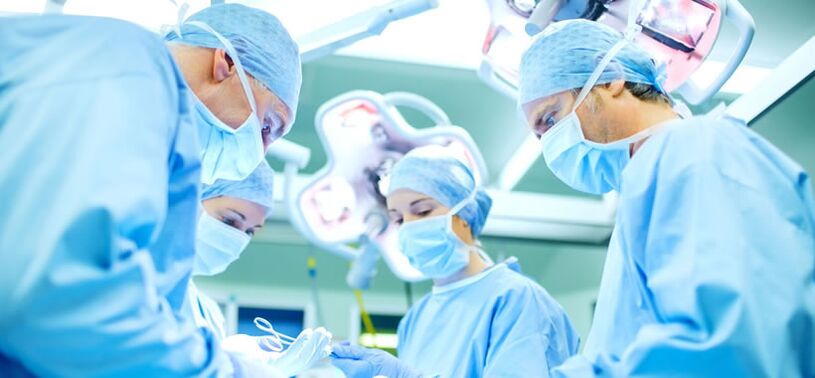
Drugs of this group should not be combined with alcohol! Although, things are not so simple. Studies in 2003 did not show a negative effect of strong alcohol consumption while using the drug. However, doctors are confident that the consequences of combining them can be as follows:
- sharp pain in the abdomen;
- nausea vomiting;
- severe headache;
- chills;
- violation of the rhythm of the heart;
- in some rare severe cases, respiratory failure develops.
Women should be aware that disulfiram-like reactions can occur not only with oral administration and injection, but also with the use of vaginal creams.
Alcohol and cephalosporins
Cephalosporins are a group of broad-spectrum drugs with strong bactericidal effects. They are considered the main "destroyer" of streptococci and staphylococcus and treat the following diseases:
- upper respiratory tract infection;
- diseases of the nose, throat and ears;
- skin and soft tissue infections.
Cephalosporins are often prescribed for purulent pharyngitis - one of the most common infections in our country.
All cephalosporins, like nitroimidazoles, are capable of causing disulfiram-like reactions. Its main symptoms: nausea, pain in the head, abdomen, are due to the intoxication of the body. The possibility of a disulfiram-like reaction must be taken seriously, as the consequences can be serious, even fatal.
There are drugs that do not fall into the above two groups, i. e. their interaction with alcohol does not lead to a disulfiram-like reaction, but also brings negative consequences.
Antibiotics are relatively safe when drinking alcohol
Several antibacterial drugs have been successfully tested for compatibility with alcohol, and their combinations are very safe for the body.
- Penicillin antibiotics.
- Expectorants and mucolytics, prescribed for lung diseases, to thin viscous sputum.
- Antifungal drugs.
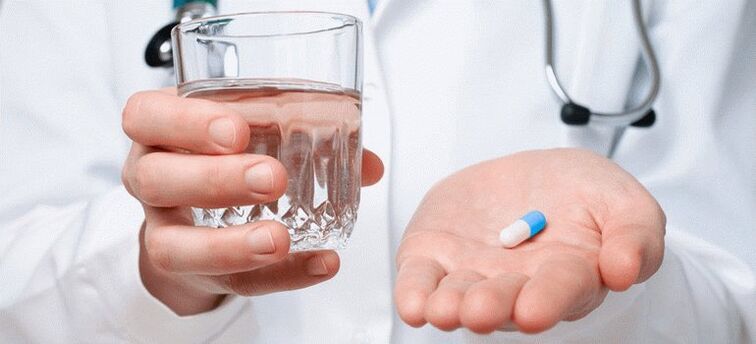
The above medicines can be taken with alcohol, but this does not mean that they can be safely washed away with strong drinks! The best option for the development of events while taking antibiotics is to completely refuse to drink alcohol.
How to properly combine alcohol and antibiotics - safety precautions
The best option for the development of events when treating patients with antibiotics is to refuse alcoholic beverages while taking the drug. In special cases, when it is impossible not to drink alcohol, you must observe the following safety rules:

- Ask your doctor if it's okay to mix alcohol with medication and think about the possibility of giving up strong drinks.
- The minimum interval between taking antibiotics and drinking alcohol is 4 hours. A shorter period of time is filled with major health problems.
- The amount to drink depends on gender, weight, severity of the current illness, strength of the drink and should not exceed 300-350 ml.
- Ethanol is present not only in strong drinks (vodka, cognac, whiskey), but also in low alcohol beverages (wine, champagne, beer). No matter how many times the alcohol concentration here is reduced, drinking will not go away without causing harm to health.
In patients being treated with antibiotics, the question arises: how long after the course of treatment is it allowed to drink alcohol? The exact answer can be given by the attending physician, and it depends on several factors: the person's gender, age, nature of their disease, health, type of medication. Most drugs have a cumulative effect, continuing to work on the body after they finish taking it. Medical professionals recommend that you start drinking alcohol no earlier than 5 days after finishing treatment.
Three rules when taking antibacterial drugs:
- Antibacterial drugs are produced and prescribed in different dosage forms: tablets, syrup, intravenous and intramuscular injection, eye drops, ointment, vaginal suppositories, solution for inhalation. Any form of the drug can cause side effects.
- Ethanol contained in the composition of alcoholic beverages is harmful to human health. It is present not only in cognac, wine and beer, but also in cough syrups, tinctures of medicinal plants (licorice, marshmallow, echinacea, eleutherococcus). It is necessary to study the composition of drugs taken together with antibiotics.
- Carefully read the instructions for use of the drug to know the degree of compatibility of the drug with alcohol. If the instructions say that research on this has not been done or information is unavailable, you will need to stop drinking alcohol during treatment.
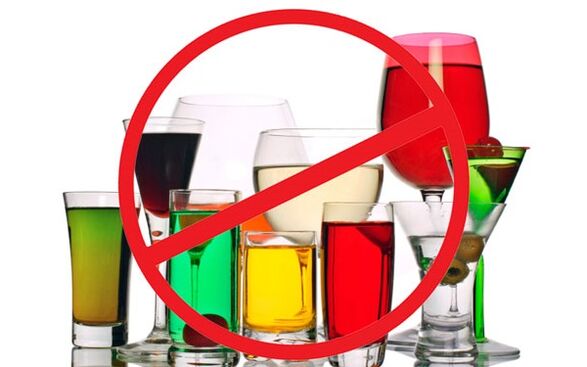
Antibacterial drugs bring unnecessary burden on the body and are prescribed in case of serious illness. The doctor can only prescribe a certain drug, everything else depends on the patient, who must first think of a quick recovery. Patients need to take medicine in time, sleep at least 7-8 hours a day, eat foods rich in vitamins and trace elements. It is better to forget about alcohol during this period. This is especially true for people with chronic diseases of the heart, liver, or kidneys. Otherwise, the negative consequences will not force themselves to reap. It can:
- Deterioration of the central nervous system and gradual death of brain cells.
- Intoxication of the body, the symptoms of which are diarrhea, nausea, vomiting.
- Kidney failure, problems with the urinary system.
- Violation of the rhythm of the heart.
- Gastritis, stomach ulcer.
- Violation of the intestinal microflora.
- Damage to the liver, leading to the gradual death of cells.
- With a weakened immune system, the body will not be able to fight off infections on its own.
- Heart.
- High blood pressure is very dangerous for high blood pressure patients.
- Stool disturbances in the form of constipation or diarrhea.
- Weakness, drowsiness, loss of strength.
- Depression, nervous breakdown.
- Irritability, insomnia.
- Impaired intellectual ability, impaired memory, ability to focus attention.
- Fever and chills.
- Severe headache.
- Convulsion.
- Allergic reactions in the form of itching, rash and redness of the skin.
- Quincke's shortness of breath and edema - without prompt medical attention, it leads to death.
- The effect of treatment is minimal or no.
- The disease can become chronic, reducing the patient's quality of life.
Alcohol in small doses will complement the holiday and help relax. But its use during illness will not bring any pleasure and can harm the body. This is the main thing a person should keep in mind when deciding on their own whether to mix alcohol and antibiotics.


























